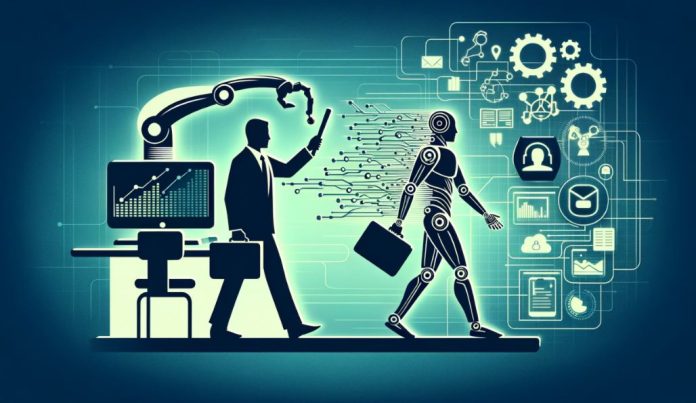By: Fatimah Anjum
ISLAMABAD – According to a recent report by the International Monetary Fund (IMF), artificial intelligence (AI) is expected to have a significant influence on approximately 40% of professions in Pakistan. IMF Managing Director Kristalina Georgieva voiced worries that the nation’s inequality may grow if artificial intelligence is used unrestrained. She issued a warning, stating that the wealthy and well-educated portions of society will probably gain more from AI.
The innovations of AI based systems in the workplace has been rising concerns of massive job losses and the widening of the economic divides. When the technology was not so highly developed that it could perform predictable and repetitive tasks, human labor was more in demand to perform such tasks and thus there was more employment and less economic recessions. Due to this the firms were able to afford the salaries to fulfill the demands of the employees.
However, as the sophisticated technology and robotics innovates in the workplace, it is raising concerns of job automation as human labor will no longer be a requirement for performing tasks which are predictable and repetitive since the latest robotics and machinery now has the ability to perform such tasks. This therefore, will leave people in various sectors jobless and without the means to earn a living. According to a recent Brookings Institution study 36 million people work in jobs with “high exposure” to automation, which means that most of their tasks, ranging from retail sales and market analysis to hospitality and warehouse labor, will be done using AI.
AI is predicted by experts to automate 60% of occupations in developed nations but just 26% in low-income countries like Pakistan. Although AI can increase productivity, it also has the potential to replace some human employment, which would result in job losses and a drop in wages.
The accelerated rate of unemployment will further lead to an economic crisis. The firms
will not be able to afford employee salaries and as these AI systems are too expensive, various small and medium size businesses fear that they will be driven out of the businesses if they will not be able to afford or license them. Moreover, the introduction of these latest technologies will also increase the risks of hacking and cybercrimes in the market.
Student name: Fatimah Anjum
Forman Christian College (A chartered university)

















